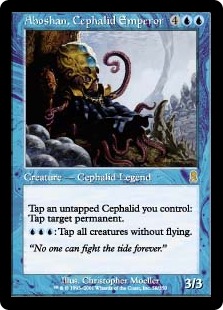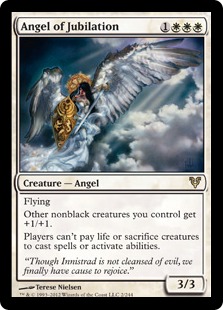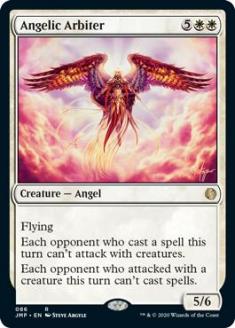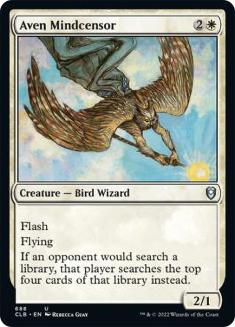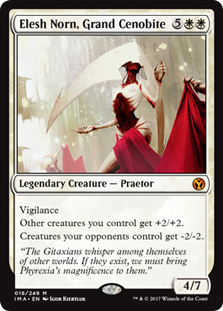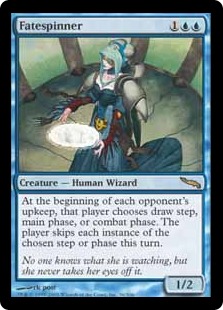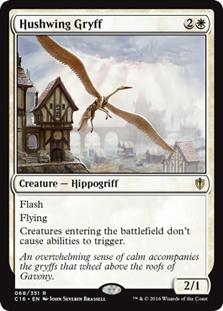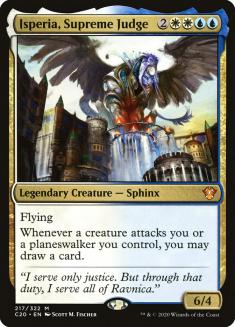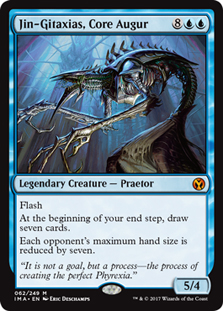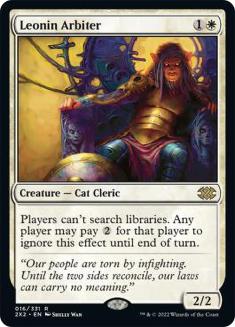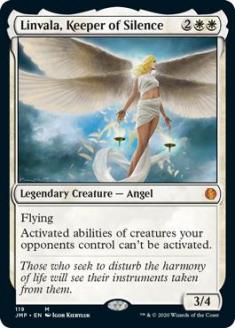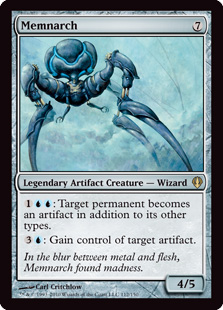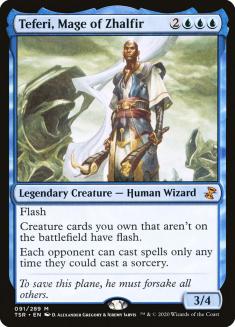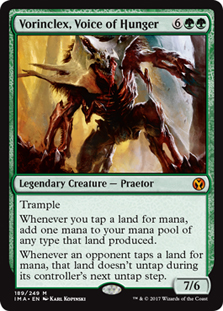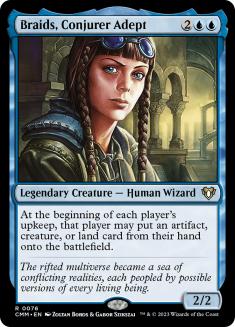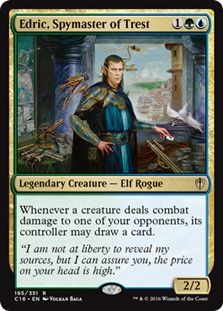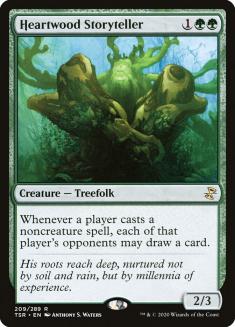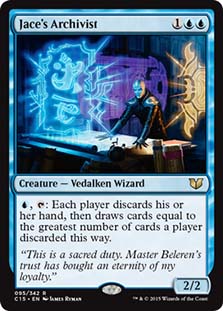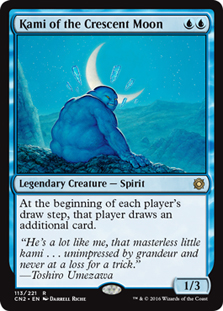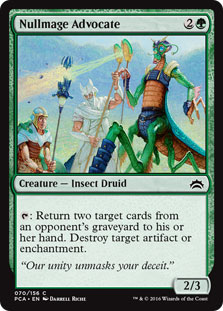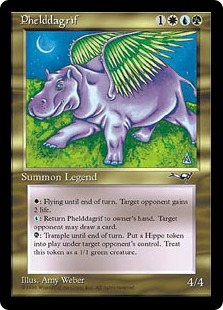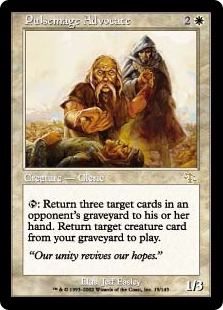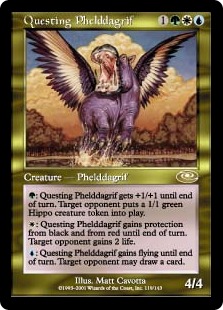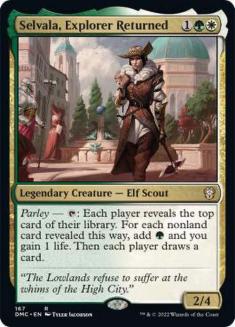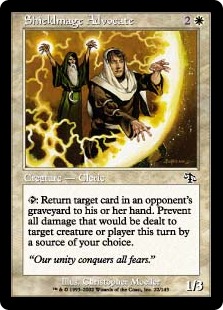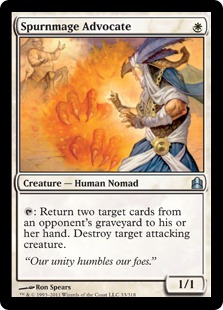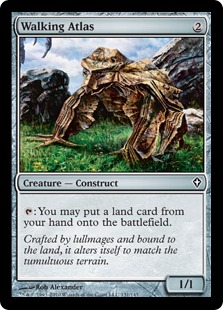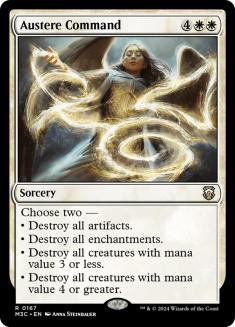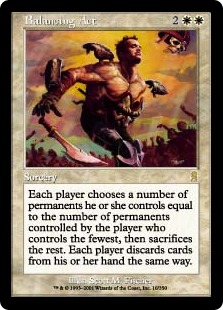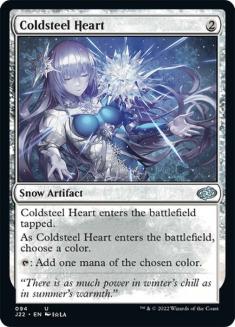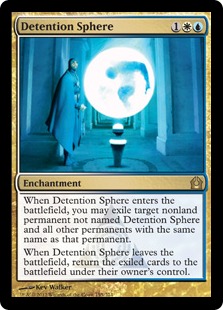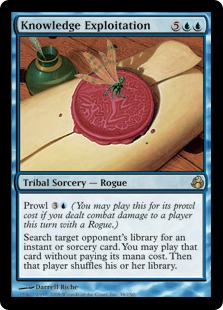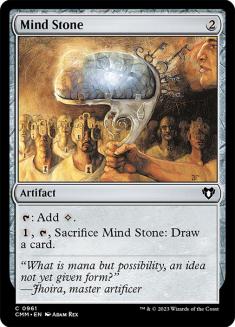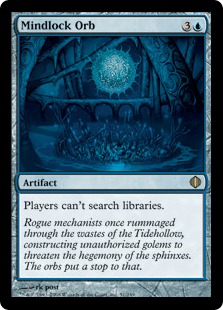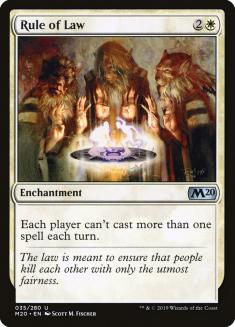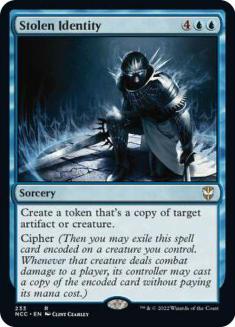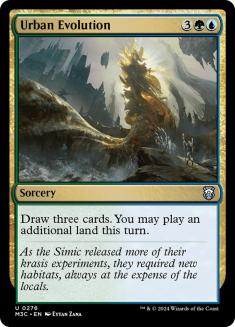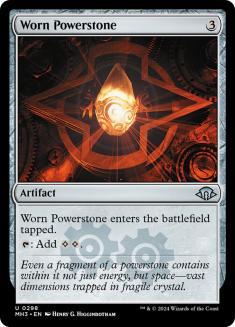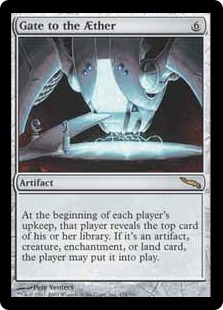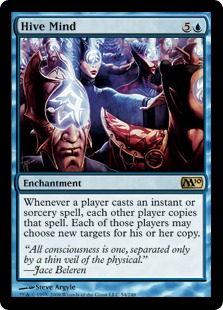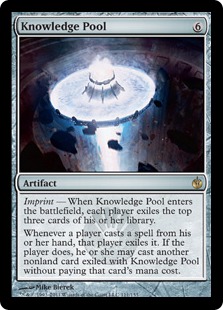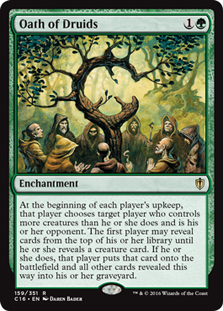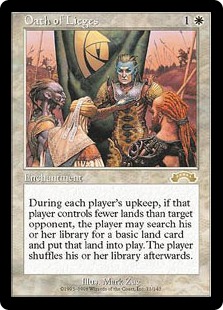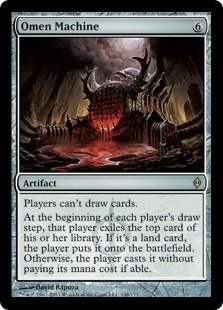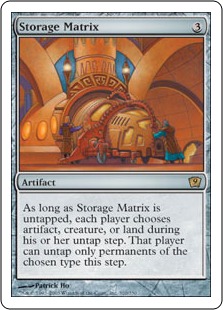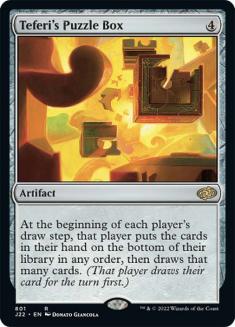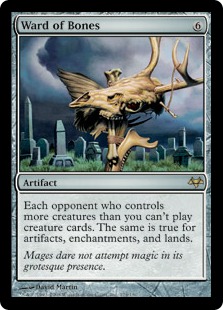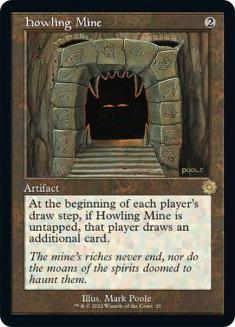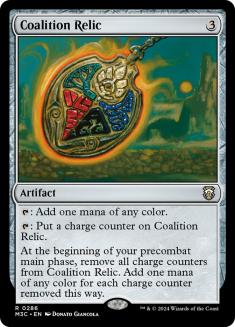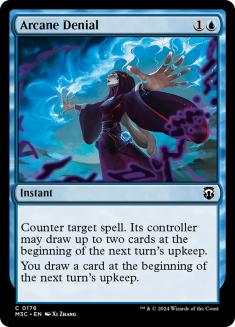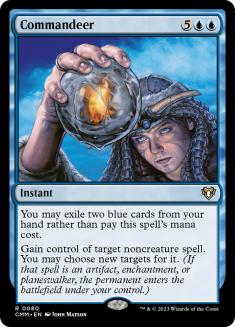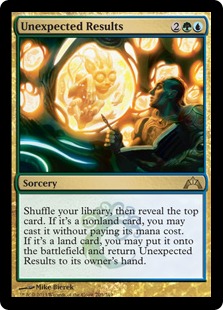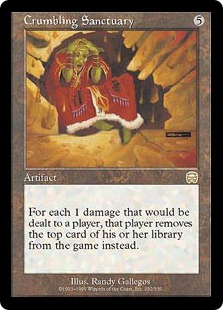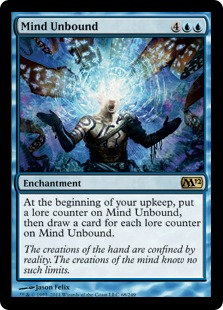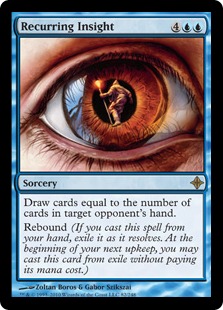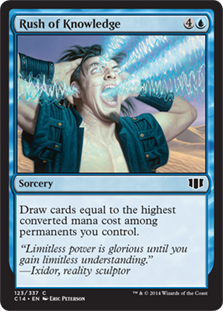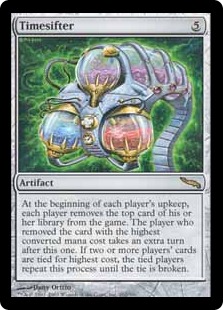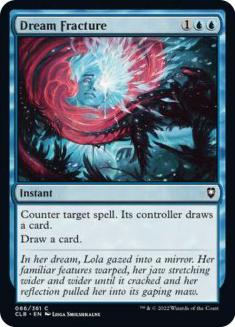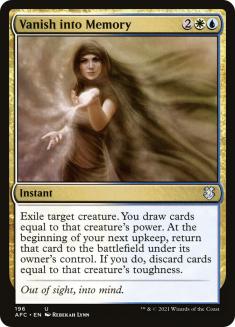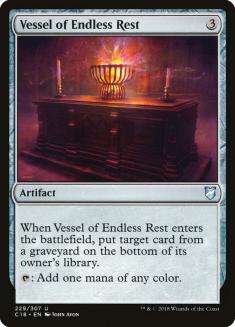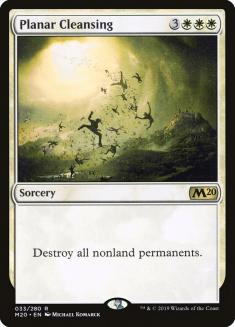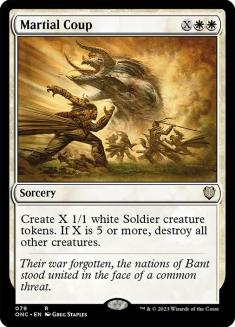For no particular reason, I decided that this week would be Rush week. Okay, for two particular reasons: one, Rush is awesome. For most of my 53 years,
they’ve been my favorite band. Two, longtime Commander fan Judson Gruber sent me his list patterned after one of the band’s greatest pieces of work, the
concept album 2112. At 11:30am Eastern time, half an hour after this piece goes live, I’ll be doing a Rush-trospective on my radio show and
podcast Brain Salad Sandwich on Florida’s #1 College Radio Station,Bulls Radio, WUSF 89.7 HD3, 1620AM, and always available streaming and live at bullsradio.org. As I put together this piece, I’m listening to the 2112 album on repeated loop just to make
sure that I stay in the right mindset.
Judson Gruber lives in the Kansas City metropolitan area with his wife and two children. When not contributing written or drawn Commander content to
CommanderCast (or to anyone else who will listen) he can be found absorbing mass quantities of all things pop culture-related, storing the gleaned
information for a later conversational reference or anecdote. Currently he is spending an inordinate amount of time making the weekly Commander webcomic
Dusters.
Loosely patterned after Ayn Rand’s novella Anthem, 2112 tells the near-future story of a man who lives on a planet under the rule of the
Solar Federation. The planet is ruled by the Priests of the Temple of Syrinx, who control all aspects of life. The man discovers a guitar and the lost art
of music, and thinking that it will be of great benefit to all the world, brings it to the Priests. It doesn’t go well for him after that. I won’t spoil
anything, leaving it to you to discover what happens in the end. There’s a wiki entry for it, but I
encourage you to give it a listen as well and offer up your own interpretation.
Judson’s deck is sculpted to reflect the world and narrative of the story. I’ll give it to you in traditional deck list format first, then we’ll break it
down by its story elements.
Creatures (28)
- 1 Rubinia Soulsinger
- 1 Memnarch
- 1 Fatespinner
- 1 Phelddagrif
- 1 Questing Phelddagrif
- 1 Aboshan, Cephalid Emperor
- 1 Spurnmage Advocate
- 1 Shieldmage Advocate
- 1 Pulsemage Advocate
- 1 Nullmage Advocate
- 1 Kami of the Crescent Moon
- 1 Walking Archive
- 1 Teferi, Mage of Zhalfir
- 1 Braids, Conjurer Adept
- 1 Aven Mindcensor
- 1 Heartwood Storyteller
- 1 Linvala, Keeper of Silence
- 1 Angelic Arbiter
- 1 Leonin Arbiter
- 1 Elesh Norn, Grand Cenobite
- 1 Jin-Gitaxias, Core Augur
- 1 Vorinclex, Voice of Hunger
- 1 Edric, Spymaster of Trest
- 1 Jace's Archivist
- 1 Angel of Jubilation
- 1 Isperia, Supreme Judge
- 1 Selvala, Explorer Returned
- 1 Hushwing Gryff
Lands (37)
- 2 Forest
- 4 Plains
- 5 Island
- 1 Ancient Tomb
- 1 Temple of the False God
- 1 Selesnya Sanctuary
- 1 Temple Garden
- 1 Azorius Chancery
- 1 Breeding Pool
- 1 Hallowed Fountain
- 1 Simic Growth Chamber
- 1 Academy Ruins
- 1 Calciform Pools
- 1 Saltcrusted Steppe
- 1 Terramorphic Expanse
- 1 Mistveil Plains
- 1 Mystic Gate
- 1 Wooded Bastion
- 1 Seaside Citadel
- 1 Glacial Fortress
- 1 Sunpetal Grove
- 1 Evolving Wilds
- 1 Command Tower
- 1 Hinterland Harbor
- 1 Gavony Township
- 1 Moorland Haunt
- 1 Temple of Mystery
- 1 Temple of Enlightenment
- 1 Temple of Plenty
Spells (35)
- 1 Oath of Druids
- 1 Howling Mine
- 1 Arcane Denial
- 1 Timesifter
- 1 Rule of Law
- 1 Gate to the Aether
- 1 Teferi's Puzzle Box
- 1 Rush of Knowledge
- 1 Mind Stone
- 1 Oath of Lieges
- 1 Crumbling Sanctuary
- 1 Worn Powerstone
- 1 Storage Matrix
- 1 Balancing Act
- 1 Coldsteel Heart
- 1 Commandeer
- 1 Vanish into Memory
- 1 Coalition Relic
- 1 Austere Command
- 1 Knowledge Exploitation
- 1 Dream Fracture
- 1 Ward of Bones
- 1 Mindlock Orb
- 1 Martial Coup
- 1 Hive Mind
- 1 Planar Cleansing
- 1 Recurring Insight
- 1 Knowledge Pool
- 1 Omen Machine
- 1 Mind Unbound
- 1 Vessel of Endless Rest
- 1 Detention Sphere
- 1 Stolen Identity
- 1 Urban Evolution
- 1 Unexpected Results

The deck is dripping with imagery from the piece. It’s amazing to me how much Judson has drawn out what is just over twenty minutes of music. The 2112
part, in seven movements, covers only the first half of the album. Those seven movements are Overture; Temples of Syrinx; Discovery; Presentation; Oracle:
the Dream; Soliloquy; Grand Finale. Here is how he broke it down, along with some of his own notes (in italics).
Commander:
Rubinia Soulsinger
The commander of the deck should probably be the protagonist of the story. Rubinia Soulsinger seemed to be the best fit. The storyteller’s gender is
never revealed in the song so that is a non-issue, and “Soulsinger” seems to fit the spiritual awakening that happens when the guitar is found and the
ensuing events that transpire.
I agree with him here regarding the spirituality of Rubinia. I also think that the sort of “loving control” which Rubinia provides fits perfectly into the
idea of the Priests of the Temple. I might consider Merieke Ri Berit as an alternative (although that obviously takes the deck in a radically different
direction) because that loving control comes with a price-if you leave her, she destroys you.
There is a Hug/Restriction type dynamic that will begin to play out through the rest of the deck. The creatures either represent the Priests of the
Temples of Syrinx or the Elder Race of Men. There is a good and evil back dynamic here so the Elder Race of Men is represented by traditional “hug”
type creatures and representing the Priest ruling class hellbent on significant manipulation, extreme oversight, and repression are creatures that do
the same who coincidently are themselves hated by opponents.
Priests of the Temple:
Elder Race of Men:
This is where we get into the real artistry of Judson’s design-it makes cards that I’d otherwise consider off-limits, like Jin-Gitaxias, Core Augur and
Vorinclex, Voice of Hunger, eminently playable. Because of the give-and-take of the deck, I would love the opportunity to play it and sculpt each game as a
story of benevolent dictatorship. Heartwood Storyteller and Edric, Spymaster of Trest reflect the Priests’ generosity toward those who are one with the
society, those who are willing to follow the rules, which we all know are there for the common good anyway. After all, “all the gifts of life are held
within our walls” (of the Priests of the Temple of Syrinx). The Advocates are also a stroke of genius in that regard. Angel of Jubliation is perfect. I can
hear the Priests of the Temple saying “Who are you to decide which people get sacrificed or not? That is our job!” A brilliant choice. Fatespinner and
Leonin Arbiter similarly set up conditions under which the Priests are exerting their control. In this post-Orwellian world, life is about making some
difficult choices. Because the deck doesn’t have any of the green spells which would go into a ramp suite, Judson has cleverly chosen cards like Selvala,
Explorer returned and Walking Atlas in order to get a few additional land into play.
If there were one card I’d want to make sure to squeeze in there somewhere, it would be Containment Priest. What it would come in for is difficult. Jace’s
Archivist would probably be what I would switch out, but I would be sad losing the archives reference.
Next comes cards that will represent the events and world revealed in the song. Here is my interpretation of the world under rule of the Solar
Federation and the Priests of the Temple of Syrinx and their giant steel walled tower. The cards were selected for their names evoking an aspect of the
world, but also with an eye towards repression and manipulation if at all possible.
World Under Rule of the Solar Federation and the Priests of the Temple of Syrinx:
How perfect is the name Austere Command? It’s like designers knew this deck would get made some day. Judson has once again done the job of finding thematic
cards, like Coldsteel Heart, which also allows the deck to be playable. Rule of Law reflects the lyric “just think about the average, what use have they
for you?” It doesn’t matter that you can cast more spells, you need to keep in line with everyone else.
Because the world is clearly set after some kind of holocaust (the brilliance of the choice of Urban Evolution is apparent here), I might go more down the
road of Worn Powerstone and Mind Stone try to find “ancient” artifacts that could power the deck. Grim Monolith could easily go in. Since it’s the Solar
Federation, Sol Ring would fit thematically. Astral Cornucopia certainly reflects the galactic theme. The Priests themselves are certainly analogous with
the Azorius Guild, so I’d accept nearly any Azorius spell into the deck, from the Cluestone and Signet to the Azorius Guildmage (and old favorite in the
format) and most definitely Azorius Arrester.
Next I needed to construct the great computers that not only provided for every want and need that the priest saw fit but also contained aspects of
removing choice and free will. It also needed to provide some sort of semblance of trying to force utopia and equality as well as making decisions for
players and dictating what they see and do. These cards were selected more for what they do than what their name is.
The Great Computer:
Just by itself Omen Machine represents the Great Computer. Tyrant’s Machine might go along with the theme, but there is nothing that I would take out in
order to put it in. The “forced equality” choices of Oath of Druids and Oath of Lieges are another master stroke of design, but none is better than Ward of
Bones. I have a slight worry that Teferi, Mage of Zhalfir and Knowledge Pool are in the same deck, but since the deck isn’t built around the combo and
there are no tutors to go fetch up either piece, I am not particularly worried about it. I would put Storage Matrix up under the “World Under the Rule…”
section, but that is just taste more than anything. Teferi’s Puzzle Box is simply a card that I love, so I am quite happy that it has found a reasonable
home here.
I’ll let Judson’s own words describe the remainder of his creative interpretation of the events in the movement.
The rest of the deck will be constructed based off the events in the song. The first words of the song about four minutes in are “and the meek shall
inherit the Earth” so Retribution of the Meek seemed like a logical inclusion as a tip of the hat to that line, but ultimately I kept finding it not
very good and cut it. Once the priests are introduced in the song the protagonist’s discovery of the guitar (a relic of the elder race of men and a
time past) in the cave behind the waterfall is next.
Finding the Guitar in the Cave:
After that the protagonist plays the guitar and presents it to the priest so that the discovery could be shared with the rest of the people. They
ultimately take it and destroy it because it’s “another toy that helped destroy/the Elder Race of Man.”
Priest’s Reaction to Guitar:
Then there is the visitation of the oracle and the storyteller experiencing past and future and many other things that enlighten and expand their
knowledge. The elder race of men also show a desire to return and smash the temple.
Dream and Revelations:
Shortly before the end when the Solar Federation is overthrown the protagonist is fearful of losing the dreams and life within them and no longer has
the guitar and commits suicide. Here the last of the cards for deck depicting these events
.
Death/Fear of Lost Memory/Overthrow:
So that is the 2112 theme deck. It is a lot of fun to play and it has the potential to really mess up the game and force people to play the decks game.
The deck decides how it wants to play. Sometimes it is overly huggy and other times it is overly repressive. Having a general that steals creatures is
a benefit for the deck in case it does happen to get to huggy or things turn into a stalemate. There are a few locks in the deck but no way to tutor
them up. The way I see their inclusion is that if they happen they happen and the bad guys win. It has been called a chaos/group hug deck, a troll
deck, and many other nasty names. It was a fun challenge but in the end the card choices are fairly subjective and it doesn’t really resemble a theme
deck by traditional means as in when the deck is looked at as a whole there is 100% chance no one will know the string that ties the deck together
other than it has group hug and chaos elements built into it. I think it succeeded in the overall plan of chaos/repression and group hug at odds with
each other. The deck does a great job of frustrating people as it often times prevents them playing certain things, messes with their phases, and
overall disrupts their game plan.
I don’t want to put too fine a point on it and no insult to the amazing theme decks which I’ve featured on these pages, but this is the best theme deck
I’ve ever seen. The completeness of the design, the cleverness of the choices, and in the end, the complete playability of the deck make it-like the thing
it was designed from-a great work of art. I have every intention of assembling the deck and playing it, even if it means stripping cards out of existing
decks. If I ever have infinite money, I’ll even get artists to alter the cards in the deck to match their function within the song. I’ll definitely find
some kind of custom deck box, maybe with the Red Star logo on it, in which to store the deck. I am over the moon about this deck. Many, many thanks to
Judson for taking the time and effort to share it with me.
By popular demand, this week’s Deck Without Comment is Trostani and Her Angels (DECKID 50434):
Creatures (35)
- 1 Exalted Angel
- 1 Solemn Simulacrum
- 1 Serra Avatar
- 1 Blinding Angel
- 1 Wood Elves
- 1 Yavimaya Elder
- 1 Karmic Guide
- 1 Adarkar Valkyrie
- 1 Wall of Reverence
- 1 Acidic Slime
- 1 Baneslayer Angel
- 1 Guardian Seraph
- 1 Linvala, Keeper of Silence
- 1 Pelakka Wurm
- 1 Angelic Arbiter
- 1 Garruk's Packleader
- 1 Sunblast Angel
- 1 Suture Priest
- 1 Aegis Angel
- 1 Restoration Angel
- 1 Sigarda, Host of Herons
- 1 Avacyn, Angel of Hope
- 1 Angel of Jubilation
- 1 Herald of War
- 1 Angel of Glory's Rise
- 1 Somberwald Sage
- 1 Soul of the Harvest
- 1 Sublime Archangel
- 1 Rhox Faithmender
- 1 Trostani, Selesnya's Voice
- 1 Angel of Serenity
- 1 Angelic Skirmisher
- 1 Archangel of Thune
- 1 Soul of New Phyrexia
- 1 Avacyn, Guardian Angel
Planeswalkers (2)
Lands (36)
- 1 Brushland
- 6 Forest
- 12 Plains
- 1 Savannah
- 1 Temple of the False God
- 1 Yavimaya Hollow
- 1 Secluded Steppe
- 1 Krosan Verge
- 1 Miren, the Moaning Well
- 1 Selesnya Sanctuary
- 1 Temple Garden
- 1 Windbrisk Heights
- 1 Reliquary Tower
- 1 Sunpetal Grove
- 1 Emeria, the Sky Ruin
- 1 Graypelt Refuge
- 1 Command Tower
- 1 Gavony Township
- 1 Cavern of Souls
- 1 Temple of Plenty
Spells (26)
- 1 Sylvan Library
- 1 Sol Ring
- 1 Moat
- 1 Rampant Growth
- 1 Mirari's Wake
- 1 Well of Lost Dreams
- 1 Crackdown
- 1 Greater Good
- 1 Aura Shards
- 1 Storm Herd
- 1 Austere Command
- 1 Fracturing Gust
- 1 Mana Reflection
- 1 Minion Reflector
- 1 Martial Coup
- 1 Lurking Predators
- 1 Planar Cleansing
- 1 Day of Judgment
- 1 Mimic Vat
- 1 Entreat the Angels
- 1 Terminus
- 1 Conjurer's Closet
- 1 Ranger's Path
- 1 Boundless Realms
- 1 Faith's Reward
- 1 Ajani's Presence

Here is the latest database version of all my decks:
ADUN’S TOOLBOX
; ANIMAR’S SWARM;AURELIA GOES TO WAR;CHILDREN of a LESSER GOD;DEMONS OF KAALIA;EREBOS and the HALLS OF THE DEAD;GLISSA, GLISSA;HELIOD, GOD OF ENCHANTMENTS;DREAMING OF INTET;FORGE OF PURPHOROS;KARN, BEATDOWN GOLEM;HALLOWEEN WITH KARADOR;KARRTHUS, WHO RAINS FIRE FROM THE SKY;KRESH INTO THE RED ZONE;LAVINIA BLINKS;LAZAV, SHAPESHIFTING MASTERMIND;ZOMBIES OF TRESSERHORN;MELEK’S MOLTEN MIND GRIND;MERIEKE’S ESPER CONTROL;THE MILL-MEOPLASM;NATH of the VALUE LEAF;NYLEA OF THE WOODLAND REALM,OBZEDAT, GHOST KILLER;PURPLE HIPPOS and MARO SORCERERS;ZEGANA and a DICE BAG;RAKDOS: LIFE IS SHORT;RITH’S TOKENS;YOU DID THIS TO YOURSELF;RURIC THAR AND HIS BEASTLY FIGHT CLUB;THASSA, GOD OF MERFOLK;THE ALTAR of THRAXIMUNDAR; TROSTANI and HER ANGELS
If you’d like to follow the adventures of my Monday Night RPG group (in a campaign that’s been alive since 1987), ask for an invitation to the Facebook
group “Sheldon Menery’s Monday Night Gamers.”

